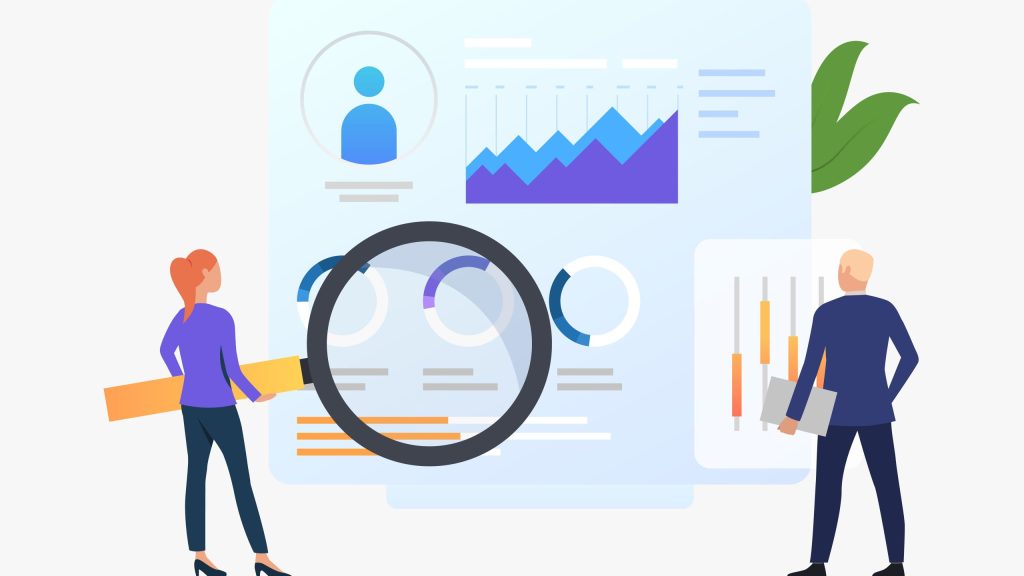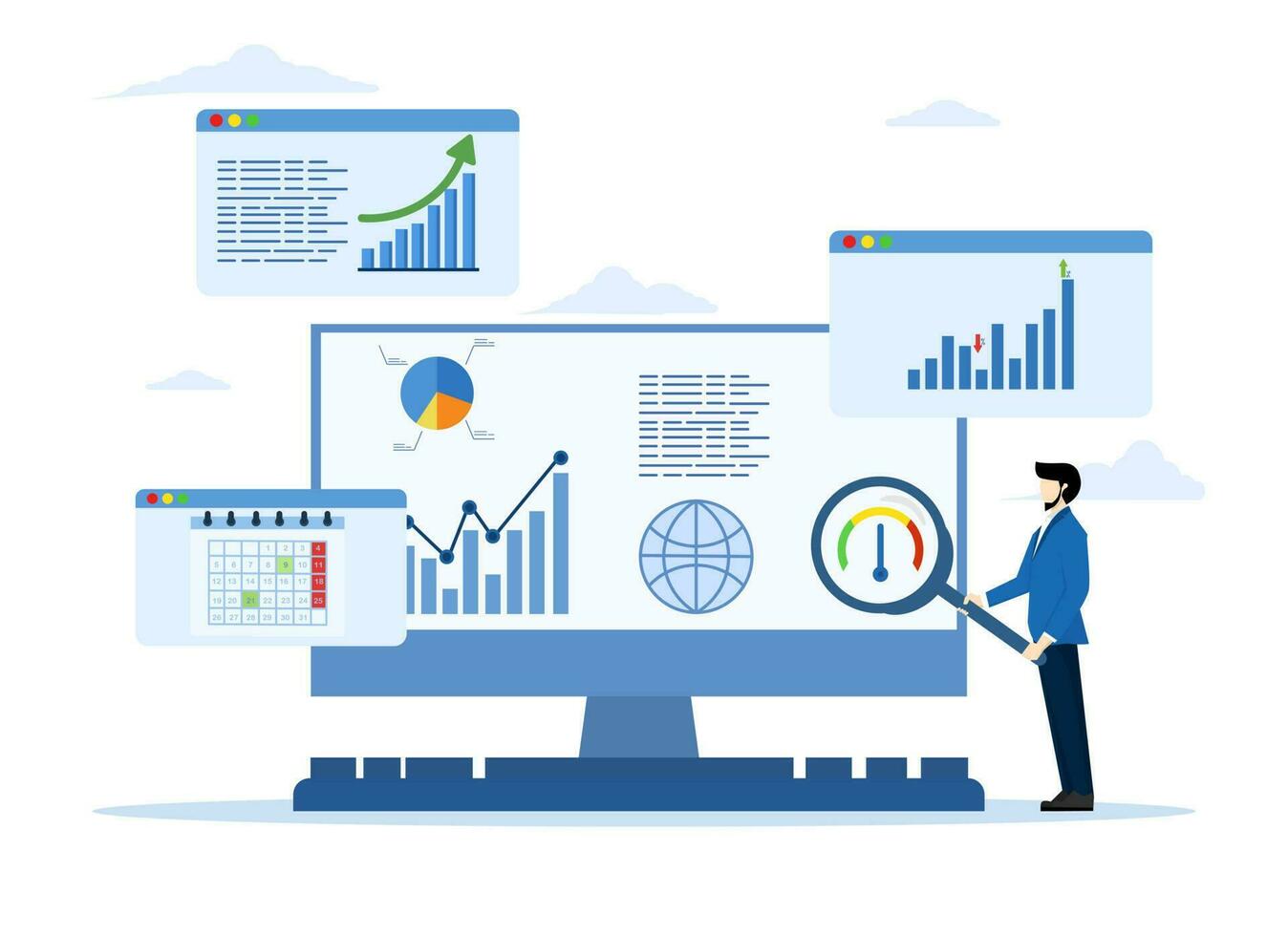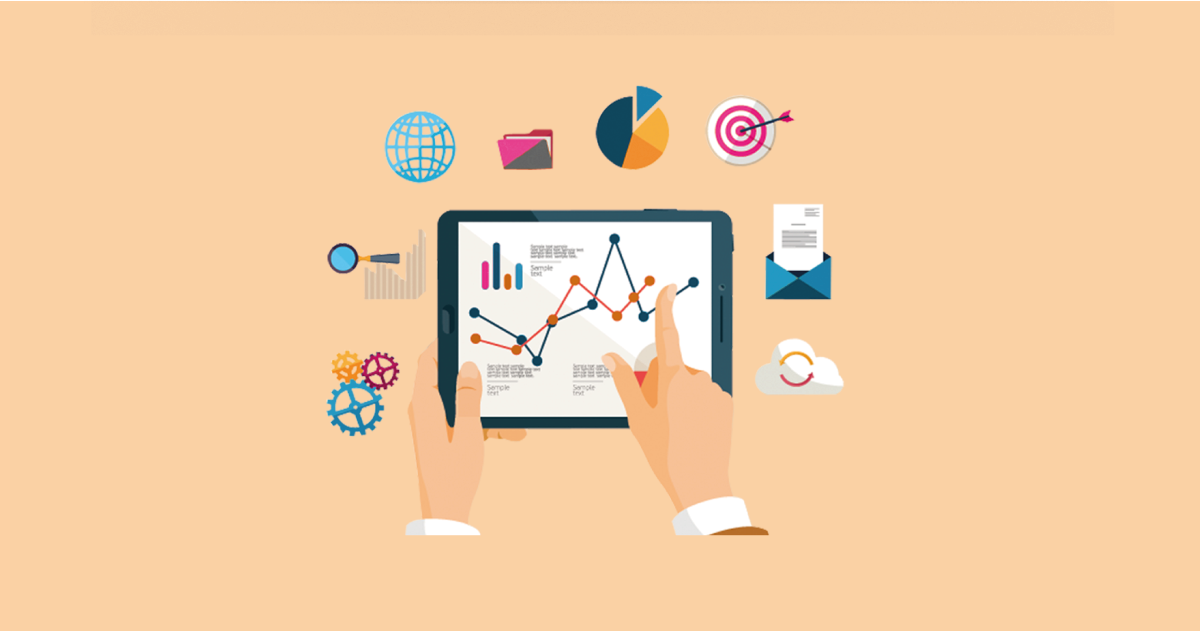In today’s highly competitive business landscape, making informed decisions is crucial for the success and growth of any organization. Market research plays a vital role in providing valuable insights and understanding consumer behavior, industry trends, and competitive landscapes. To effectively analyze and interpret vast amounts of data, market research analysts rely on specialized software that streamlines the process and enhances decision-making capabilities. In this article, we will explore the role of market research analyst software, its key features, benefits, and considerations when choosing the right software for your organization.
Role of Market Research Analyst Software

Market research analyst software is a specialized tool designed to facilitate the collection, analysis, and interpretation of data for market research purposes. It provides advanced capabilities to handle large datasets, automate repetitive tasks, and generate accurate reports. By leveraging the power of technology, market research analysts can streamline their workflow and focus more on analyzing data and deriving meaningful insights.
Features of B2B Market Research Tools
Data collection and management: Market research analyst software allows for efficient data collection from various sources, including surveys, social media, and customer databases. It provides tools to organize and manage data in a structured manner for easy access and retrieval.
- Data visualization and reporting: Visualizing data is essential for better understanding and communication. Market research analyst software offers interactive charts, graphs, and dashboards to present data in a visually appealing and easy-to-understand format. It enables analysts to create comprehensive reports that highlight key findings and recommendations.
- Statistical analysis and forecasting: Market research analyst software includes robust statistical analysis tools to identify patterns, correlations, and trends in the data. It allows analysts to perform complex statistical calculations and generate accurate forecasts to support decision-making processes.
- Competitive analysis and benchmarking: Understanding the competitive landscape is crucial for businesses. Market research analyst software provides features to analyze competitors’ strategies, market share, and customer perceptions. It helps businesses identify opportunities for differentiation and gain a competitive edge.
- Automation and efficiency: Market research analyst software automates repetitive tasks, such as data cleaning, coding, and analysis. It saves time and reduces the chances of human error, allowing analysts to focus on higher-value activities like interpretation and strategy development.
How Market Research Analyst Software Improves Decision-Making
- Enhanced data accuracy and reliability: Market research analyst software ensures data integrity by minimizing manual data entry and automating quality checks. This improves the accuracy and reliability of insights derived from the data, leading to more informed decision-making.
- Deeper insights and actionable recommendations: With advanced analysis capabilities, market research analyst software uncovers hidden patterns and relationships within the data. It helps analysts gain deeper insights into customer behavior, market dynamics, and emerging trends, enabling them to provide actionable recommendations to stakeholders.
- Faster and more efficient analysis process: By automating time-consuming tasks and streamlining workflows, market research analyst software accelerates the analysis process. Analysts can quickly analyze data, generate reports, and deliver insights promptly, allowing businesses to make informed decisions faster.
- Identification of market trends and opportunities: Market research analyst software enables businesses to proactively identify market trends and emerging opportunities. By analyzing historical data and real-time information, organizations can adapt their strategies to capitalize on market shifts and gain a competitive advantage.
Key Considerations When Choosing Market Research Analyst Software
- Scalability and flexibility: Select software that can accommodate your organization’s current and future research needs. It should be scalable enough to handle increasing data volumes and flexible to adapt to evolving research requirements.
- Integration with existing systems: Ensure the software can seamlessly integrate with your existing data sources, CRM systems, and other business applications. Smooth data flow and integration eliminate manual data transfers, reducing errors and improving efficiency.
- User-friendly interface and ease of use: Look for marketing research analyst software with an intuitive interface and user-friendly features. A user-friendly interface allows analysts to navigate the software effortlessly and perform tasks without extensive training.
- Customization options: Every organization has unique research requirements. Choose software that offers customization options to tailor the analysis process and reports according to your specific needs. This flexibility allows you to extract maximum value from the software.
- Customer support and training: Consider the level of customer support and training offered by the software provider. Reliable customer support ensures timely assistance in case of technical issues, while comprehensive training resources enable analysts to utilize the software to its full potential.
Best Market Research Tools in the Market

- SurveyMonkey: This software offers a user-friendly interface with comprehensive data collection and analysis features. It provides advanced statistical capabilities and customizable reporting options. Its scalability makes it suitable for both small businesses and large enterprises.
- Qualaroo: Designed for in-depth competitive analysis, this software offers robust benchmarking tools and real-time market insights. It includes advanced visualization features and integrates seamlessly with popular CRM systems.
- Tableau: This software focuses on automation and efficiency. It streamlines data collection, analysis, and reporting processes, allowing analysts to perform tasks more efficiently. Its intuitive interface and extensive training resources make it suitable for both beginners and experienced analysts.
- AIM IResearch: This is another powerful market research analyst software that deserves recognition. With its cutting-edge features, intuitive interface, and advanced data analysis capabilities, AIM Research empowers businesses to make data-driven decisions with confidence. It offers a wide range of tools for data collection, visualization, and statistical analysis, allowing analysts to uncover valuable insights and trends. Aim Insights also provides exceptional customer support and training resources to ensure a seamless implementation process.
How to Implement Market Research Analyst Software Successfully
To ensure the successful implementation of marketing research analyst software, consider the following steps:
- Set clear goals and objectives: Define the specific objectives you want to achieve through market research analysis. Align the software implementation plan with these goals to ensure maximum impact.
- Train employees and provide ongoing support: Invest in training programs to familiarize your analysts with the software’s features and functionalities. Ongoing support and regular skill enhancement workshops will help them make the most of the software.
- Define data sources and collection methods: Identify the relevant data sources and establish efficient data collection methods. This ensures the software receives accurate and reliable data for analysis.
- Develop a standardized analysis process: Create a standardized analysis process that outlines the steps to be followed when using the software. This ensures consistency and allows analysts to collaborate effectively.
- Regularly evaluate and refine the software usage: Continuously evaluate the software’s performance and gather feedback from analysts. Incorporate improvements and updates to optimize usage and maximize the benefits.
Case Study: How AIM Research Transformed Market Research for a B2B Tech Firm
A leading B2B technology firm specializing in cloud computing and cybersecurity solutions was facing difficulties in the market research methods. As they needed updated data from the market all the time. And the traditional ways to gather insights included many challenges. Leading to difficulties in data collection, analysis, and forecasting, which hindered their ability to make data-driven decisions.
Challenges Faced by the Company
The company depended on manual methods to gather the data from the market.
- Inefficient Data Collection & Management
The company depended on collecting the data from many different sources. Including social media, surveys, and CRM systems, without having one main platform. Which led to difficulty in organizing the insights and analyzing them.
- Limited Data Visualization & Reporting
The data was stored in spreadsheets, which took a lot of time to analyze and export insights through it. Leading to delays in the delivering time for the insights, and the actions taken based on it.
- Inaccurate Market Forecasting
Without the availability of advanced research tools, the company wasn’t able to know the new market changes and trends quickly. Leading to miss opportunities in many trends and doesn’t know the customer’s demand.
- Ineffective Competitive Analysis
They weren’t able to know the competitor’s strategies in real time. Leading to delays in the company’s growth and finding opportunities in the market to grow.
- Time-Consuming & Error-Prone Processes
The manual way of gathering information took a lot of time and effort. Resulting to inaccurate data and insights for the business, which needed a revision.
Solution: Implementing AIM Research
- Automated Data Collection & Management
The tool was able to be integrated to collect the data from many different sources. Leading to collecting the insights and structuring it for more effective analyses.
- Advanced-Data Visualization & Reporting
The software provided customized charts for the brand, helping to take the insights in any format. With the ability to see the data in real-time and take actions based on them.
- Predictive Analytics & Market Forecasting
The tool provided the company with analytics and insights about historical performance. And it was able to predict the market movements and new trends.
- Competitive Benchmarking & Analysis
The company was able to track the performance of the competitors and their strategies. And analyze the sentiment of the competitor’s audience and their feedback on the services.
Results & Business Impact
- Increased Efficiency by 60%
With the automation of collecting the data and insights, the company reduced the time spent on gathering information. Allowing the teams to focus on other tasks and take better actions.
- Improved Forecast Accuracy by 45%
Predictive analytics helped the company to reach better resources. Leading to more accurate actions and planning.
- Enhanced Competitive Intelligence
By tracking the competitor’s strategies and techniques, the company was able to build a better strategy. To stay ahead of the competition and improve its position in the market.
- Faster Decision-Making
The company was able to have real-time reports, enabling them to take faster decision and take better action.
Conclusion
Market research analyst software plays a crucial role in enhancing data-driven decision-making. By leveraging its advanced features, businesses can gain deeper insights, make more accurate predictions, and identify new opportunities. When selecting market research analyst software, consider factors such as scalability, integration capabilities, user-friendliness, customization options, and customer support. Successful implementation requires setting clear goals, providing training and support to analysts, defining data sources, establishing standardized processes, and regularly evaluating software usage.
To experience the power of market research analyst software firsthand and understand how it can benefit your business, we invite you to request a demo from AIM Technologies. Our industry-leading software offers comprehensive features, an intuitive user interface, and dedicated customer support. Don’t miss out on the opportunity to revolutionize your market research analysis. Request a demo today!
FAQs
1. What skills are required to become a marketing research analyst?
- To become a marketing research analyst, you need strong analytical skills, proficiency in data analysis software, knowledge of statistical methods, effective communication skills, and the ability to interpret and present data insights.
2. Can marketing research analyst software replace human analysts?
- Marketing research analyst software enhances the capabilities of human analysts by automating repetitive tasks and providing advanced analysis tools. However, human analysts are still needed to interpret the data, apply critical thinking, and provide strategic insights.
3. Is market research analyst software suitable for small businesses?
- Yes, marketing research analyst software is suitable for small businesses. There are software options available that cater to the needs and budgets of small businesses, offering essential features and scalability for future growth.
4. How much does marketing research analyst software cost?
- The cost of marketing research analyst software varies depending on the features, scalability, and vendor. It is advisable to request pricing information from software providers and compare options based on your specific requirements.
5. Are there any free marketing research analyst software options available?
- Yes, there are free marketing research analyst software options available. These free tools usually have limited features but can still provide basic data analysis and visualization capabilities.




